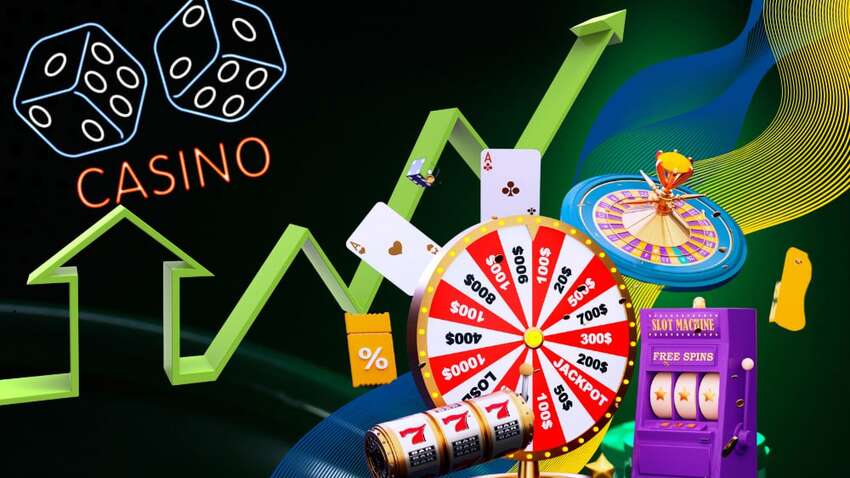
Understanding Fair Play Certifications in Online Gaming
The landscape of online gaming has evolved significantly over the years, fostering a diverse community of players and game developers. One of the key aspects that have come to prominence in this environment is the concept of Fair Play Certifications. These certifications play a crucial role in establishing trust and integrity within the online gaming industry. This article will delve into the meaning, significance, and the processes involved in acquiring Fair Play Certifications, ensuring players can engage with confidence. For those interested in joining the online gaming community, the Fair Play Certifications in Online Casinos betwinner registration online offers a seamless entry point.
What are Fair Play Certifications?
Fair Play Certifications are authoritative endorsements granted to online gaming platforms that adhere to predefined standards of fairness, security, and transparency. These certifications are often awarded by independent regulatory bodies that assess various elements of the gaming experience, including the random number generators (RNGs) used in games, the fairness of game rules, customer support effectiveness, and the overall integrity of the gaming environment.
The Importance of Fair Play Certifications
In an era where online interactions are ubiquitous, ensuring the safety and fairness of online gaming is paramount. Here are some critical reasons why Fair Play Certifications are essential:
1. Trust and Credibility
Players are more likely to engage with online platforms that have earned their Fair Play Certifications. These endorsements serve as a form of assurance that the platform operates within the legal limits and adheres to industry standards. They eliminate concerns regarding fraudulent activities, establishing credibility.
2. Transparency
Fair Play Certifications require gaming operators to be transparent about their operations, including how games are structured, the odds of winning, and how payouts are processed. This transparency builds trust with players and creates an inviting atmosphere for those new to online gaming.
3. Player Protection
Many Fair Play Certification bodies emphasize the importance of protecting players’ interests. This includes the assurance that player funds are secure and that the games offered are fair. When players know that their rights are safeguarded, they can enjoy their gaming experience without undue stress or worry.
How Fair Play Certifications are Obtained
The process of obtaining a Fair Play Certification typically involves several stringent steps to ensure fairness and integrity. Here’s a brief overview:
1. Application

The gaming operator must submit an application to the certifying body, detailing their operations, systems, and policies. This application often requires comprehensive documentation covering various aspects of the online gaming platform, designed to portray its commitment to fair play.
2. Assessment
Once the application is received, the certifying organization conducts a thorough assessment. This involves analyzing the RNGs, reviewing the game’s coding, checking compliance with industry regulations, and evaluating the transparency of game rules.
3. Testing
Independent testing labs play a significant role in the certification process. These labs perform rigorous tests on the software, simulating gameplay to ensure that outcomes are genuinely random and fair. They assess payout percentages and monitor for any irregularities.
4. Review and Decision
After testing, the certifying body reviews the findings. If the gaming platform successfully meets all the required criteria, it is awarded the Fair Play Certification. If not, the operator may be given feedback on necessary improvements to achieve certification.
Types of Fair Play Certifications
There are several recognized Fair Play Certifications in the industry, each with its own criteria and testing standards. Here are a few notable ones:
1. eCOGRA
eCOGRA (eCommerce and Online Gaming Regulation and Assurance) is one of the leading bodies offering Fair Play Certifications. Their certification is acknowledged globally and emphasizes player protection, game fairness, and responsible operator practices.
2. iTech Labs
iTech Labs is renowned for software and game testing, providing independent verification and certification services. Their Fair Play Certification assures players of the integrity of the games offered by the certified operators.
3. TST (Technical Systems Testing)
TST is another significant provider of fairness certifications, delivering comprehensive testing in compliance with industry standards. They evaluate a broad spectrum of gaming software to ensure fair outcomes.
Challenges Facing Fair Play Certifications

Despite their importance, the Fair Play Certification process is not without challenges. Here are a few key issues:
1. Evolving Technology
As technology advances, new gaming systems and technologies emerge. Keeping up with these developments and updating certification criteria accordingly can be challenging for certifying bodies.
2. Regulatory Variability
Different regions have varying laws and regulations pertaining to online gaming, complicating the standardization of Fair Play Certifications on a global scale. This variability can confuse players who may not understand the differences between certifications.
3. Fraudulent Entities
There are unscrupulous operators that falsely advertise their platforms as certified when they have not undergone any legitimate certification process. This misrepresentation is detrimental to players’ trust in the industry and highlights the importance of verifying certifications through authoritative sources.
The Future of Fair Play Certifications
The future of Fair Play Certifications appears promising as the online gaming industry continues to expand. Here are some trends that may shape their evolution:
1. Increased Regulation
As more jurisdictions move toward legislating online gaming, it’s likely that Fair Play Certifications will become even more standardized and regulated, making compliance necessary for operators to survive in competitive markets.
2. Enhanced Technology Integration
With advancements in technology, particularly in blockchain and artificial intelligence, the processes of obtaining and maintaining certifications can become more efficient. These technologies could enhance transparency and traceability of gaming outcomes.
3. Focus on Responsible Gaming
As the emphasis on player protection grows, Fair Play Certifications may incorporate more rigorous requirements to promote responsible gaming practices, ensuring operators provide adequate resources for player support and safeguards against gambling addiction.
Conclusion
Fair Play Certifications serve as a cornerstone in the online gaming industry, providing a framework that promotes trust, fairness, and transparency. As players become increasingly educated and discerning about their gaming choices, Fair Play Certifications will be pivotal in enabling platforms to operate in a competitive landscape while safeguarding player interests. By understanding the importance and processes associated with these certifications, players can make informed choices and enjoy their gaming experiences safely and confidently.
